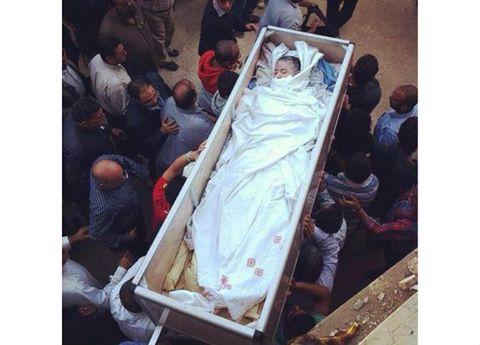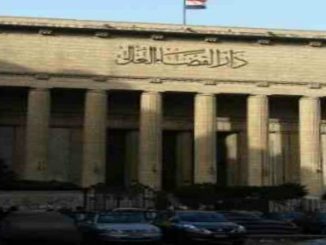
Dr. Tarek El Ghandour, a dermatologist professor at Ain Shams University and a leading figure of the Freedom and Justice party, was sentenced by the criminal court to 5 years in prison on December 14, 2014.
He was charged with raising Rabaa logo, disturbing the public peace and joining a banned group.
The ministry of interior has announced his death in custody on November 12, 2014. He died after suffering internal bleeding in Abu Zaabal prison, Egypt.
As a result of medical negligence-Ghandour kept bleeding for six hours from his esophagus.
On May 21, 2016, the court of cassation cancelled the verdict issued against El Ghandour a year and a half after his death.
The Egyptian court of cassation ordered the release of Dr. Tarek El Ghandour stating that the verdict against him was arbitrarily issued and fabricated based on the investigations. In addition, the verdict was based on an inaccurate legal basis, said the court of cassation.
On July 30, 2016, the public prosecutor referred Dr. El Ghandour (the dead professor) to the misdemeanor court for a charge of demonstrating (while he was dead!!).
Moreover, the public prosecution had previously sent him to provisional detention despite his death that was proved by his lawyers. However, the public prosecution insisted on its decision and did not take this into consideration.
On August 7, 2016, Madinet Nasr court sentenced the dead professor to an enforceable judgment of two years in prison and 50,000 Egyptian pounds bail although his lawyers presented to the court what proves his death.
In fact, what happened to Dr. Tarek El Ghandour is a clear and explicit evidence of the collapse of the justice system in Egypt.
It’s noteworthy that no serious investigation has taken place on Dr. Tarek El Ghandour death circumstances inside the prison and the deliberate medical negligence till this moment.
Since the military coup in 2013 led by Abdel Fattah al-Sisi against the first democratically elected president of Egypt Mohamed Morsi, the Egyptian authorities have launched a massive crackdown against political opposition, mostly of the Muslim Brotherhood group.
The judicial system in Egypt has been politicized in its verdicts and charges, it turns to a tool to serve the military regime to punish its opponents rather than to ensure the dominance of the rule of law and constitution.
According to Freedom House, a non-governmental organization that conducts research and advocacy on democracy, political freedom and human rights, a number of criminal cases in 2015 featured severe violations of due process and demonstrated a high degree of politicization in the court system, which typically resulted in harsh punishments for perceived” enemies of the government.”
At least 538 people were sentenced to death in 2015, including a final sentence for 183 people in a mass trial of alleged Muslim Brotherhood supporters who were accused of killing 11 police officers and two civilians in 2013. At least 22 people were executed during the year.
Accordingly, playing the role of the defender of the state led to the breakdown of the judicial system in Egypt which lost its credibility after the coup will indeed have disastrous repercussions on Egypt.



